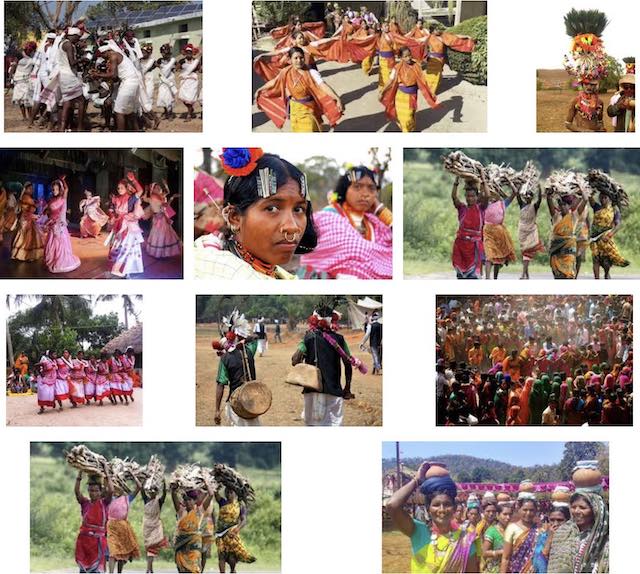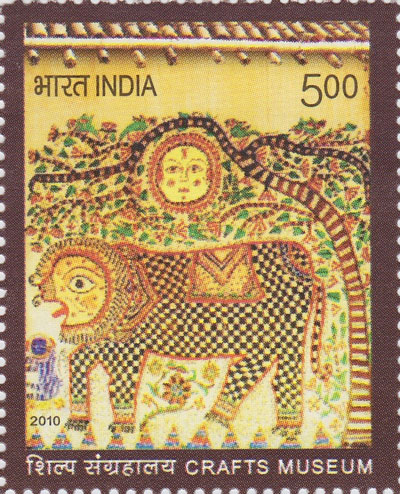Gangadharan Menon, The Better India, February 27, 2014 | Read the full story and view more photos >>
Read how one man’s vision and perseverance led to the creation on India’s only man-made sanctuary. It took 15 years of convincing villagers and enlisting their participation, but the beautiful forest is now replete with fauna and flora. […]
Though there were over a 100 species of birds there, the national bird was conspicuous by its presence. Their loud calls welcomed us, and as we walked to the first waterhole, we saw them in all moods and poses: some on treetops with their bronze feathers glistening in the morning light; some busy pecking on the morning dew; some perfecting their majestic rain dance; and some gliding down from their perches and leaving behind a streak of ultramarine blue.
But Mohan Karnat, the Chief Conservator of Forests, Kolhapur, shared with us a stunning ecological truth: a spurt in the numbers of peacocks is not a good sign for the habitat! Simply because, being voracious eaters, they polish off copious quantities of newly sprouted grass, thereby destroying the grasslands. In the true wild, this balance is maintained by predators. […]
Situated at a height of 2700 feet, the scenic Sagareshwar is probably the only wildlife sanctuary that has ‘Points’ like in a hill-station. So you have the Ranshool Point, the Kirloskar Point and the Mahangund Point. As we were trekking up the mountain, I realized the pressures of tourism on this tiny sanctuary. […]
Source: India’s Only Man-Made Sanctuary – A Green Dream That Took 15 Years To Sprout! » The Better India
Address : http://www.thebetterindia.com/9396/indias-man-made-sanctuary-green-dream-took-15-years-sprout/
Date Visited: Mon May 26 2014 22:21:17 GMT+0200 (CEST)
The Better India is an attempt to bring out the happy stories, the unsung heroes (and heroines!), the small good deeds, and showcase them to the world. Over here, you will read about the incremental progress being made by the people of this country, the developments happening on the social and economic front. We hope that by showcasing these here, we might be able to inspire at least one amongst you, the readers, to do something that leaves an impact. Small or big. But, an impact.
Source: You’ve Seen Warli Paintings Before. Now Get Ready To Visit The Warli Tribe & Listen To Their Music. » The Better India
Address : http://www.thebetterindia.com/9921/walvanda-tribal-art-music-culture-travel-maharashtra/
Date Visited: Tue May 27 2014 15:12:47 GMT+0200 (CEST)
Up-to-date reports by Indian experts and journalists
Search tips
Combine the name of any particular state, language or region with that of any tribal (Adivasi) community.
Add keywords of special interest (music, poetry, dance just as health, sacred grove and biodiversity); learn about the rights of Scheduled Tribes such as the “Forest Rights Act” (FRA); and the United Nations “Declaration on the Rights of Indigenous Peoples”, “Universal Declaration of Human Rights”, “women’s rights”, or “children’s right to education”.
Specify any other issue or news item you want to learn more about (biodiversity, bonded labour and human trafficking, climate change, ecology, economic development, ethnobotany, ethnomedicine, global warming, hunter-gatherers in a particular region or state, prevention of rural poverty, water access).
For official figures include “scheduled tribe ST” along with a union state or region: e.g. “Chhattisgarh ST community”, “Himalayan tribe”, “Scheduled tribe Tamil Nadu census”, “ST Kerala census”, “Particularly Vulnerable Tribal Group Jharkhand”, “PVTG Rajasthan”, “Adivasi ST Kerala”, “Adibasi ST West Bengal” etc.
In case the Google Custom Search window is not displayed here try the following: (1) toggle between “Reader” and regular viewing; (2) in your browser’s Security settings select “Enable JavaScript” | More tips >>
Note: hyperlinks and quotes are meant for fact-checking and information purposes only | Disclaimer >>
List of websites covered by this Google custom search engine
Academia.edu (platform for academics to share research papers) – www.academia.edu
Archive.org – https://archive.org
Centre for Science and Environment – https://www.cseindia.org
Current Conservation – https://www.currentconservation.org
Development and Cooperation (D+C) https://www.dandc.eu
Down To Earth (India) – www.downtoearth.org.in
India Environment Portal – www.indiaenvironmentportal.org.in
Harnessing Nature Magazine – https://harnessingnature.online
Mongabay-India – https://india.mongabay.com
M S Swaminathan Research Foundation – www.mssrf.org
Navdanya (protecting India’s biodiversity based food heritage) – https://navdanya.org
Third World Network (Penang, Malaysia) – https://twn.my
The Shola Trust (nature conservation in the Nilgiri region) – www.thesholatrust.org

Indian online periodicals and platforms | Images view >>
~ ~ ~
Personalize your CustomSearch by combining other search words >>
(e.g. name of a tribal community and region, a craft, or dance and puppetry)
Research the above issues with the help of Shodhganga: A reservoir of theses from universities all over India, made available under Open Access >>
Note: hyperlinks and quotes are meant for fact-checking and information purposes only | Disclaimer >>

wildlife tourism and conservation policies >>
When your neighbour is a tiger | People’s Archive of Rural India
People living near or within the forest in the Bandipur National Park and the Sundarbans revere as well as fear the tiger. Their proximity to tigers, leopards, crocodiles and other big animals often causes violent confrontations, but it has also inspired myths and conservation. Here are PARI’s tales from tiger territory >>